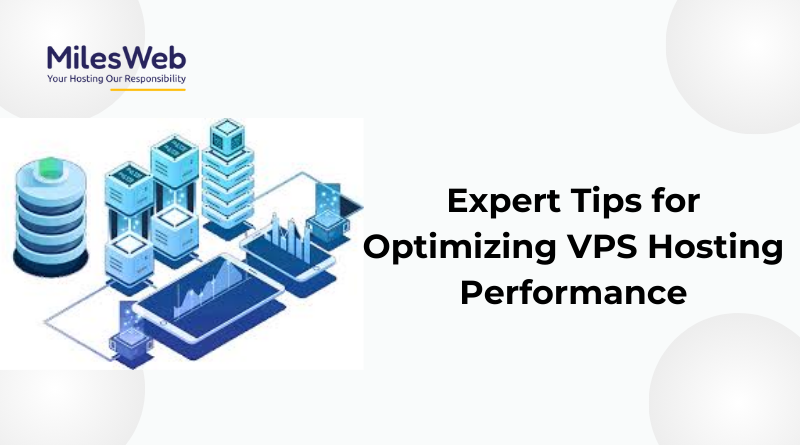Virtual Private Server (VPS) hosting stands out as a powerful and flexible solution between shared and dedicated hosting servers. This type of web hosting offers dedicated resources, enhanced security, and greater control, making it an ideal option for businesses and individuals seeking robust performance. However, simply opting for VPS hosting is not enough. You need to buy virtual private server and optimize it to maximize the performance of your VPS hosting.
VPS hosting allocates a portion of a physical server’s resources to your website. It provides an isolated and secured hosting environment like virtual dedicated server. Because of this, isolation is there for better performance and stability, as your website is not affected by the activities of other websites on the same server.
Understanding VPS Hosting
Before we dig deeper into the optimization tips, it is crucial to understand the VPS hosting basics. A VPS is a virtualized server that converts into a dedicated server within a shared hosting environment. It offers root access, allowing you to install and configure software as required. VPS hosting comes in two main types: managed and unmanaged. VPS hosting with managed hosting means that the hosting provider takes care of maintenance and support. While unmanaged VPS hosting means that you will be held answerable for all maintenance and support. There is no one right answer, depending on your technical level and what you need.
Choosing the Right VPS Hosting Plan
Choosing the right plan for VPS hosting performance is the first step. Consider the following factors when choosing a VPS hosting plan:
- Resources: Check what kind of CPU, RAM, and storage have been offered. Make sure that they fit your website’s prerequisites.
- Scalability: Choose a provider where it’s easy to scale your resources if your required capacity increases.
- Uptime Guarantee: Select providers like MilesWeb that at least reach 99.9% uptime in order to be confirmed reliable.
- Customer Support: They could be really handy for help with troubleshooting, as well as optimization.
Optimizing Server Configuration
1. Operating System Choice
Choosing the right operating system (OS) is crucial for VPS performance. Linux-based OSs like Ubuntu, CentOS, or Debian are popular choices due to their stability, security, and performance. Ensure your OS is up-to-date and optimized for your specific needs.
2. Web Server Selection
The choice of web server software can significantly impact the performance. Two of the most used web servers are Apache and Nginx. Nginx has become a well-known technology for its high performance and light resource consumption, making it an ideal choice for VPS hosting. When it comes to a web server, you have to think about what your requirements are on it, and then weigh in with what you’ll get of a web server.
3. Database Optimization
Optimizing your database is essential for improving VPS performance. Regularly maintain your database by:
- Indexing: Ensure your database is properly indexed to speed up queries.
- Query Optimization: Optimize your SQL queries to reduce load times.
- Regular Backups: Implement regular backups to prevent data loss and ensure quick recovery.
4. Caching Implementation
Caching stores frequently accessed data to reduce the load on your server. Implement server-side caching using tools like Varnish or Redis. Additionally, use content delivery networks (CDNs) to cache static content and reduce latency.
Enhancing Security
1. Firewall Configuration
A robust firewall is essential for protecting your VPS from unauthorized access and attacks. Allow only necessary traffic and block malicious attempts. Tools like UFW (Uncomplicated Firewall) can simplify firewall management.
2. Regular Updates and Patches
With every new security patch, make sure that your VPS is updated and all installed software stays up to date. Updates provide a means by which vulnerabilities may be shielded and optimal performance can be achieved.
3. Monitoring and Alerts
Get yourself implementing monitoring tools to monitor your VPS performance and security. If you’re tracking resource usage, you can use one of the Nagios, Zabbix, or Prometheus-type tools, or if you’re looking to monitor anomalies, and to set alerts to tune anything, you can go ahead and install that.
Conclusion
Optimizing VPS hosting performance required a combination of strategic choices and ongoing maintenance. By choosing the right VPS hosting plan, optimizing server configuration, enhancing security, and implementing website performance best practices, you can maximize the VPS potential. Remember that if your goal is to get a seamless and efficient user experience. It leads to better engagement, higher search engine rankings, and boosted conversions.
A well-optimized VPS by MilesWeb gives clients competition in this digital world. Take their expert tips through managed services, and your VPS hosting performance will surge and offer visitors a better experience — and help power your online presence. Exclusive features like global data center locations, unmetered bandwidth, 1 Gbps network speed and others to amplify the digital marketing strategy.
